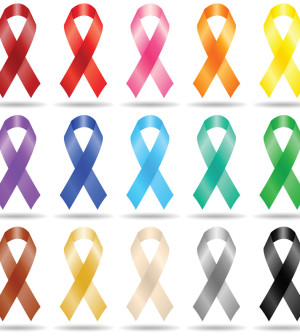- Could Your Grocery Store Meat Be Causing Recurring UTIs?
- Are You Making This Expensive Thermostat Error This Winter?
- Recognizing the Signs of Hypothyroidism
- 10 Strategies to Overcome Insomnia
- Could Artificial Sweeteners Be Aging the Brain Faster?
- Techniques for Soothing Your Nervous System
- Does the Water in Your House Smell Funny? Here’s Why
- Can a Daily Dose of Apple Cider Vinegar Actually Aid Weight Loss?
- 6 Health Beverages That Can Actually Spike Your Blood Sugar
- Treatment Options for Social Anxiety Disorder
Beating Breast Cancer But Still Paying a Price

Women who survive breast cancer often experience lingering physical and emotional symptoms that go untreated, new research suggests.
Ninety-two percent of long-term breast cancer survivors report at least three untreated symptoms for which they need assistance, according to the study.
The most common unmet needs are achy joints, fatigue and weight gain — each affecting about one in four survivors in the study.
Survivors living with more unmet needs are also more likely to experience anxiety and depression, the study found.
Although the study involved just over 100 mostly white and college-educated women at one cancer center, the findings may be important for the nation’s 2.8 million breast cancer survivors, the study authors suggest.
When you extrapolate these results to the larger population of survivors, “it gets a lot worse very quickly,” said lead author Steven Palmer. “You end up talking about hundreds of thousands of people with unmet needs in the community.”
Palmer, a research scientist at the University of Pennsylvania’s Abramson Cancer Center in Philadelphia, said the study highlights “a real missed opportunity to improve outcomes.”
Advancements in breast cancer treatment have greatly improved survival. Today, 89 percent of patients can expect to live five or more years, Palmer and his colleagues noted.
Yet, the study authors suspect that persistent physical and mental health symptoms may be the “price for this survival.”
There are lots of possible reasons why women aren’t getting adequate symptom relief, including a shortage of medical oncologists, poor continuity of care for survivorship issues and limited time during office visits, Palmer explained.
“There are focuses that are pressed in a visit, and they’re going be on ‘How are you doing with maintaining your tamoxifen schedule? Have you had your mammograms on time?’ ” he said.
“My guess is that we pay more attention to survival than we do to what it actually means in terms of long-term costs,” Palmer observed.
Doctors used to view these long-term side effects as a “cost” of treatment, said Dr. Kerin Adelson, who wasn’t involved in the study. She is a medical oncologist specializing in breast cancer at Yale-New Haven Health in Connecticut.
“Increasingly, we are learning that untreated physical and psychological symptoms are associated with worse compliance and quality of life,” Adelson said.
“It is critical that we begin to ask our patients questions about how they are doing in terms of pain, sexual function, body image and emotional health,” she said.
The study involved 103 breast cancer survivors who were disease-free for at least three years. Their mean age was 63 years. Their breast cancer hadn’t spread to other parts of the body at the start of the study.
Women in the study completed surveys on the prevalence and severity of 19 common symptoms of disease and treatment. They were also asked whether they would like help managing any of these symptoms.
On average, they reported having nine symptoms, most commonly fatigue, aching joints, memory difficulty, weight gain, decreased sexual interest, insomnia, anxiety, vaginal dryness and difficulty concentrating.
Sixty-five percent had at least one unmet need for help, while the average survivor reported three unmet needs.
Palmer was surprised that such a large number of women reported bothersome symptoms even 11 years, on average, after diagnosis.
“These are things that are not being caused by current treatments. These are long-term effect,” he said.
Eighteen percent and 3 percent of these women, respectively, reported elevated levels of anxiety and depression. Yet, these symptoms ranked low among unmet needs, with only 7 percent indicating a need for help with either of these problems.
“It’s not much higher than you would expect in the general population,” but that doesn’t mean anxiety and depression aren’t a concern for some survivors, Palmer said.
Due to the study design, the researchers weren’t able to determine to what extent these effects are related to the patients’ cancer versus the treatments they received.
The findings were presented recently at the 2016 San Antonio Breast Cancer Symposium. Research presented at meetings is typically considered preliminary until published in a peer-reviewed medical journal.
More information
The Susan G. Komen Foundation has information on managing breast cancer’s side effects.
Source: HealthDay
Copyright © 2026 HealthDay. All rights reserved.










